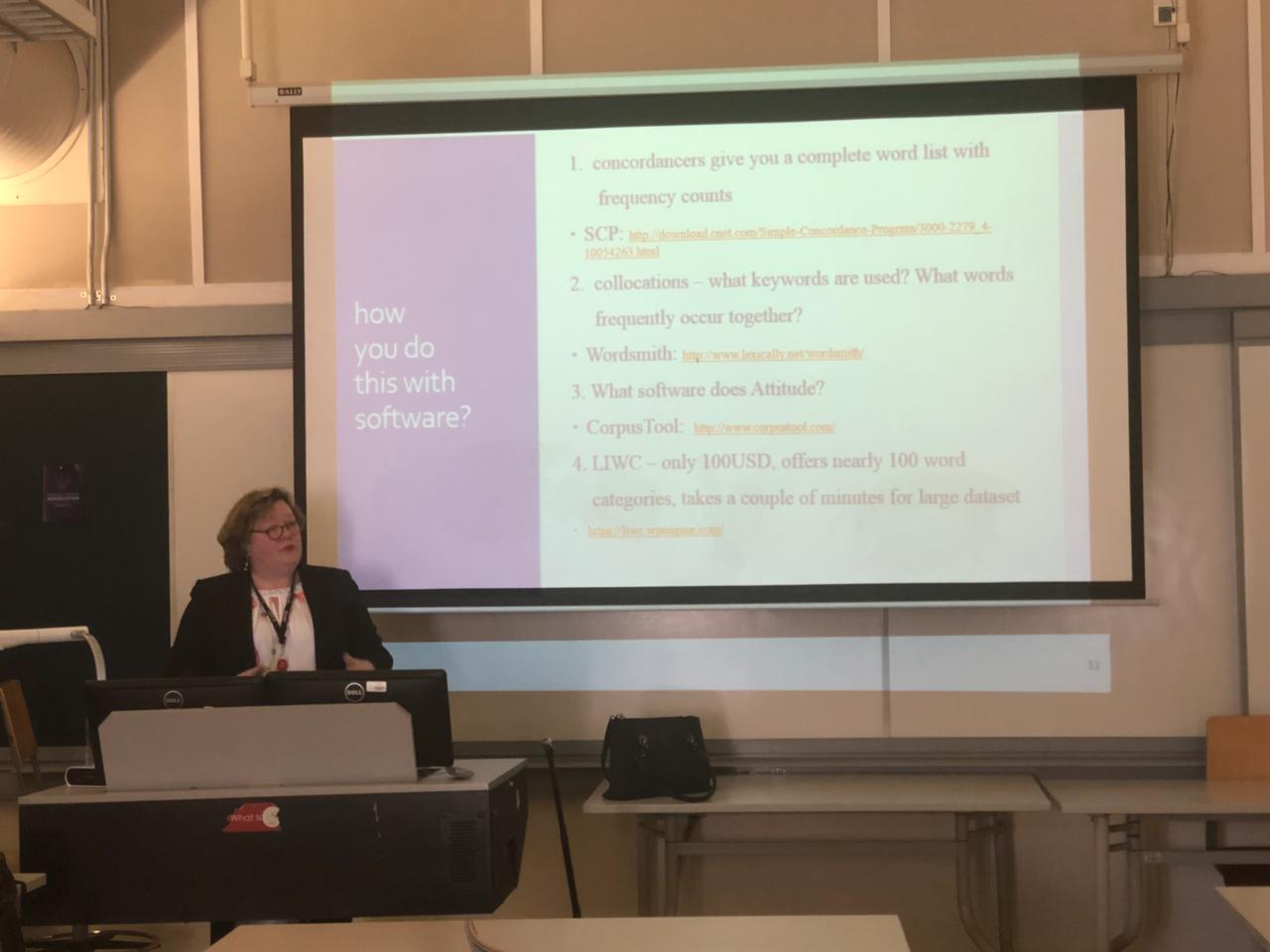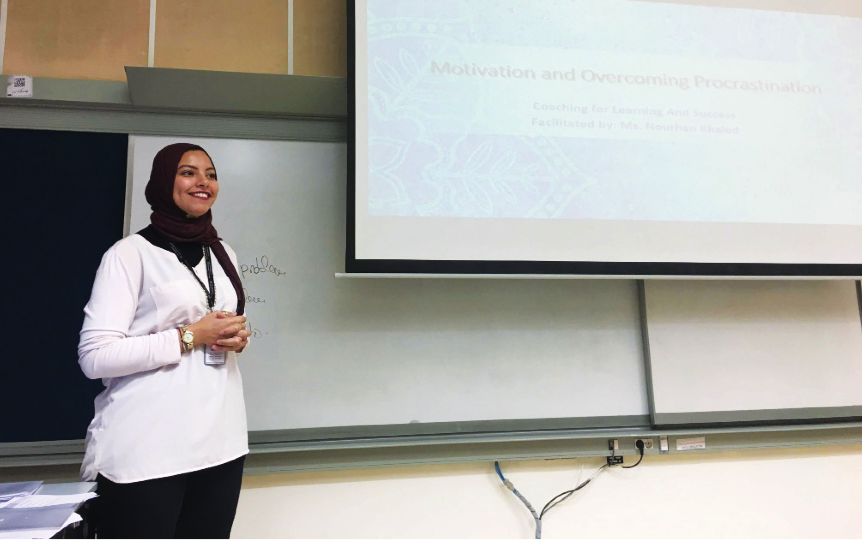You Are What You Say: Locating Gender Identities in Everyday Speech
By Amy Ismail
Follow @aimyi
Language is never neutral and therefore identity is reflected in human speech.
Speaking during the interdisciplinary Brownbag Lunch Series last week, instructor of rhetoric and composition Christina DeCoursey said that one’s identity influences how one speaks and their choice of words.
“Everything about the way you talk, if you’re an artist, scientist, gay, straight, male or female it will show up in the way you talk,” she said in a talk titled “Gender and Language: Research Methods for Exploring Text Corpora for Gender-Related Language and Content.”
The series, organized in conjunction by the School of Humanities and Social Sciences (HUSS) and the Cynthia Nelson Institute for Gender and Women’s Studies as part of the Gender Research Program, is comprised of a selection of talks offered by AUC professors and instructors on various issues relating to gender and women’s issues.
DeCoursey offered the audience the chance to explore her gender and language related research findings.
One of her central points was that there is a gap between what one actually says and what one means; therefore, one must try to interpret and understand the things others say.
DeCoursey took this further by discussing the theory of genderlect, which presupposes that men and women communicate differently, and questioned what can be done to bridge the gap.
“Genderlect is a dialect that connects to gender, all of us talk differently in different contexts,” she said.
However, the ways a person speaks differently whether at work, with family, parents, school or with friends are different contexts, all of which impose different expectations that all people try to meet within that certain context, no matter what the gender identity.
“Sportsman, scientist, loving grandmother, whatever you are – this will affect how you express yourself. So, your identity influences how you speak and your choice of words,” DeCoursey told The Caravan.
DeCoursey then presented statistics that suggests that women with a feminine identity tend to interrupt more in conversations than men with a masculine identity.
Moreover, if a woman is talking to another woman they tend to speak in one way, but if a woman is in mixed company, she will talk in another.
“We live in a time where there are 8 or 10 different gender identities,” said DeCoursey.
The process of this self-discovery of these gender identities within people is reflected in their way of expression, whether through written text or speech.
DeCoursey told The Caravan that she is currently collaborating with the US embassy in Cairo regarding letters of recommendations.
“It is known that if a letter of recommendation is being sent to a woman the words chosen are those that stress her cooperativeness and supportiveness very much casting her in a traditional feminine role,” she said.
On the contrary, if it is for a man they stress that he is bold and daring, she added.
Even though a man and a woman could have committed the same act, for the man it could be considered brave, alternately, it might be perceived as aggressive and not accepted by the woman.
If enough text and words are provided, a professional linguist may be able to identify the gender of the writer or speaker through their choice of words.
Through techniques such as word place and the choice of words from a large number of word classes, a linguist is not only able to tell whether the person is being deceptive or not but can also gain insight into their identity.
“The choice of words and word class is what gets analyzed to see how people perform their identity.”
However, DeCoursey added that since there are now multiple gender identities, as opposed to two, this has become much more difficult.
“The session Christina gave was similar to what I do but she focuses more on gender, or the identity of the speaker. I come from the political science department, and I am self taught so it was nice to hear what a trained linguistic analyst does,” Assistant Professor of Political Science, and one of the organizers of the Brownbag Series, Holly Oberle told The Caravan.



